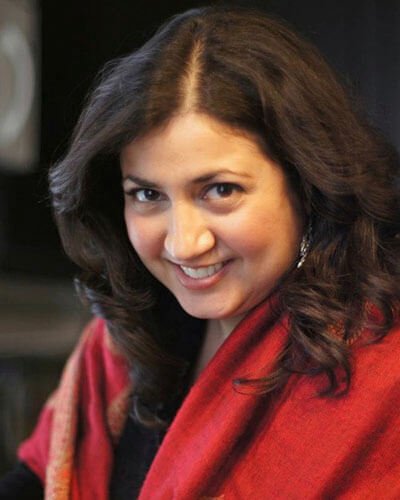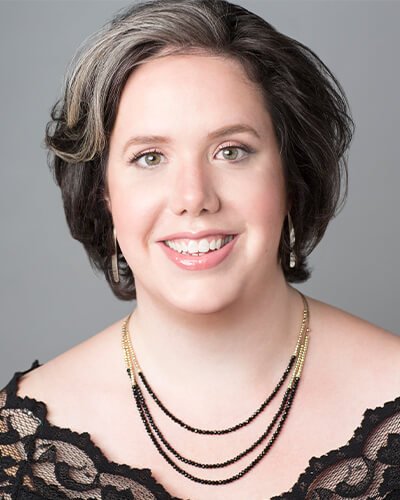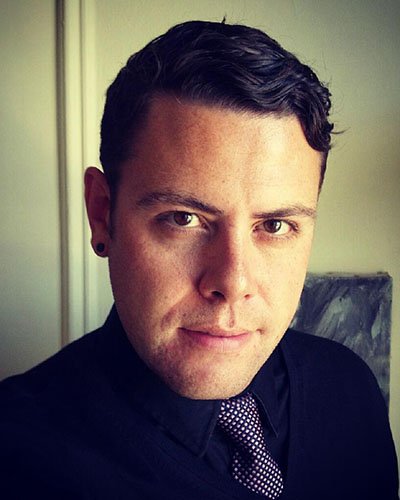Cantata Collective Program 14
May 23 and 24, 2020 CANCELED: New Dates TBD
Johann Sebastian Bach (1685-1750)
Herr, gehe nicht ins gericht mit deinem Knecht, BWV 105
1. Chorus: Herr, gehe nicht ins Gericht mit deinem Knecht
2. Recit: Mein gott, verwirf mich nicht
3. Aria: Wie zittern und wanken
4. Recit: Wohl aber dem, der seinen Bürgen weiss
5. Aria: Kann ich nur Jesum mir zum Freunde machen
6. Chorale: Nun, ich weiss, du wirst mir stillen
Wachet auf, ruft uns die Stimme, BWV 140
1. Chorus: Wachet auf, ruft uns die Stimme
2. Recit: Er kommt, er kommt
3. Aria-Duet: Wenn kömmst du, mein Heil
4. Chorale: Zion hört die Wächter singen
5. Recit: So geh herein zu mir
6. Aria-Duet: Mein Freund is mein
7. Chorale: Gloria sei dir gesungen
Sherezade Panthaki, soprano
Sara Couden, alto
David Kurtenbach, tenor
Paul Max Tipton, bass
Marc Schachman & Stephen Bard, oboe
Michael Dupree, taille|
Kati Kyme & Lisa Weiss, violin
Anthony Martin, viola
William Skeen, cello
Kristin Zoernig, bass
Charles Sherman, organ
Guest Artists
Sherezade Panthaki
Soprano Sherezade Panthaki’s international success has been fueled by superbly honed musicianship; “shimmering sensitivity” (Cleveland Plain Dealer); a “radiant” voice (The Washington Post); and vividly passionate interpretations, “mining deep emotion from the subtle shaping of the lines” (The New York Times). An acknowledged star in the early-music field, Ms. Panthaki has ongoing collaborations with leading early music interpreters including Nicholas McGegan, Simon Carrington, the late John Scott, Matthew Halls, and Masaaki Suzuki, with whom she made her New York Philharmonic debut.
Highlights of her past and current seasons include Messiah with Bach Collegium Japan, the National Symphony Orchestra, Calgary Philharmonic, and the Nashville and San Antonio Symphonies; Saul with the Tafelmusik Baroque Orchestra; Belinda in Dido and Aeneas and Galatea in Acis and Galatea with the Mark Morris Dance Group; Solomon with the Radio Kamer Filharmonie; Handel at Carnegie Hall with William Christie; Christmas Oratorio with the Orchestra of St. Luke’s; Mozart’s Exsultate jubilate and Requiem, with the Washington Bach Consort; and St. John Passion, St. Matthew Passion, and Brahms Requiem with St. Thomas Fifth Avenue.
Ms. Panthaki’s repertoire extends well beyond the music of the Renaissance and Baroque to Orff’s Carmina Burana with the Houston Symphony, Rachmaninoff’s Vocalise and Strauss lieder at the Bari International Music Festival, Britten’s War Requiem with Louisville Choral Arts Society, as well as solos in Stravinsky’s Les Noces, Poulenc’s Stabat Mater and Gloria.
Ms. Panthaki holds an Artist Diploma from the Yale School of Music.
Sara Couden
Praised for her "unusually rich and resonant voice" (Opera News), contralto Sara Couden is a premiere interpreter of operatic, chamber, and song repertoire. In 2020 she will sing for the first time with the Philadelphia Orchestra as the Mother, Cup, and Dragonfly in L’enfant et les sortileges, as well as Dritte Magd in Elektra. She will be making her debut at San Francisco Opera as Rita in The Handmaid's Tale, and Seattle Symphony as the alto soloist in their Messiah. She will sing her first Elijah with the Yale Camerata, and will perform Grieg's Haugtussa cycle with the Brooklyn Art Song Society. In 2021, she will be singing Stravinsky’s Three Songs from William Shakespeare as part of a Musicians from Marlboro 2021 tour.
Highlights of 2019 included a return to Carnegie Hall as the alto soloist in Sir Karl Jenkins' Stabat Mater, Dejainira in Handel's Hercules at the Staunton Music Festival, Testo in Stradella's La Susanna with Heartbeat Opera / Opera Lafayette, Israelitish Man in Philharmonia Baroque’s Judas Maccabaeus, Shostakovich's From Jewish Folk Poetry with the Chamber Music Series at Lincoln Center, Bach's St. Matthew Passion with True Concord Voices and Orchestra, and a return to the Met to cover Marta / Pantalis in Mefistofele.
In previous seasons, Ms. Couden made her Metropolitan Opera debut as Albine in Thais and covered Erste Magd in Elektra. She toured Japan with Maestro Masaaki Suzuki in Bach's B Minor Mass, sang Third Lady in Die Zauberflote with the Los Angeles Philharmonic, Dryad in Ariadne auf Naxos and Penelope in Il ritorno d'Ulisse in patria with West Edge Opera, and sang "Urlicht" as the alto soloist in Mahler's Second Symphony with the Santa Cruz Symphony. She completed the Lindemann Young Artist Program at the Metropolitan Opera, and has been a fellow at the Marlboro Music Festival, Music@Menlo, Music Academy of the West, and the Institute for Young Dramatic Voices. Ms. Couden holds a Master of Music with Honors from the San Francisco Conservatory of Music and an AD in Early Music, Chamber Music, and Oratorio from the Yale Institute of Sacred Music.
David Kurtenbach
DAVID KURTENBACH, tenor, described in “warm and intimate” performances as having a voice “lined with silver,” enjoys an active choral and solo career, having appeared as soloist with Philharmonia Baroque Orchestra, Bach Collegium San Diego, American Bach Soloists, Oregon Bach Festival, Ensemble VIII, Apollo’s Fire, Magnificat, Volti, and the Grace Cathedral Choir of Men and Boys. Also a devoted fan of new music, Kurtenbach has premiered works by James MacMillan, Meredith Monk, David Lang, Dave Brubeck, Kirke Mechem, Eric Banks, and Moses Hogan. His recordings may be heard on Innova/Naxos, Koch International, Tonehammer, Pro Organo, and Soli Deo Gloria.
Mr Kurtenbach is also an experienced conductor, having served as Chorus Master and Assistant Conductor at Opera San Jose and Festival Opera, as well as preparing and conducting symphony choruses in Oakland and across the country. As a teacher and lecturer, he taught master classes in voice, choral conducting, and vocal accompanying at Oberlin Conservatory and San Francisco Choral Society, and for the last nine years, was appointed Instructor of Voice and Music Theory at Grace Cathedral in San Francisco, serving as chief music educator for boy choristers and clergy. Exploring a ministry to sacred music, he often serves as Conductor, Organist, Cantor, and Officiant for Cathedral services, including conducting a recent performance of 220 voices for the Presiding Bishop of the Episcopal Church.
Paul Max Tipton
Described by the Atlanta Journal-Constitution as a dignified and beautiful singer, bass-baritone Paul Max Tipton enjoys an active career in opera, oratorio, and chamber music throughout North America, Europe, China, and Korea. He has recently appeared with the symphonies of San Antonio and Grand Rapids, with the Orchestra of St. Luke’s, and with the New York Philharmonic as part of their first-ever Bach Festival. He has sung with Bach Collegium Japan, Tenet (NYC), Blue Heron (Boston), and the Washington Bach Consort; in 2015 he debuted at Spoleto Festival USA and has appeared with Cut Circle (Palo Alto) at early music festivals in Maastricht, Antwerp, and Utrecht (2018). He has collaborated with Matthias Pintscher, Ton Koopman, Kenneth Slowik, Leonard Slatkin, Simon Carrington, Helmuth Rilling, Rubén Dubrovsky, Nicholas McGegan, and Ricky Ian Gordon; soloed for Grant Llewellyn with the Handel and Haydn Society; and performed the title role in Mozart’s Don Giovanni with Martin Katz conducting. He recently recorded Nicolaus Bruhns’s solo cantatas for bass for the BIS label, and has appeared in recital with Masaaki Suzuki. Current operatic credits include the role of Archibald Grosvenor in Patience with Odyssey Opera and Plutone in Monteverdi’s Orfeo with Göteborg Baroque in Sweden (2018). Mr. Tipton trained on full fellowship at the University of Michigan School of Music in Ann Arbor, being mentored by mezzo-soprano Luretta Bybee and tenor George Shirley. He is a graduate of the Yale University School of Music and Institute of Sacred Music, having studied with tenor James Taylor. Based in Boston, he was made a Lorraine Hunt Lieberson Fellow at Emmanuel Music in 2012. www.paulmaxtipton.com
Bach Cantata Translations
BWV 105 - "Herr, gehe nicht ins Gericht mit deinem Knecht"
| Cantata for the Ninth Sunday after Trinity | |
| 1. Chor Herr, gehe nicht ins Gericht mit deinem Knecht. Denn vor dir wird kein Lebendiger gerecht. (Psalm 143:2) |
1. Chorus Lord, do not pass judgment on Your servant. For before You no living creature is justified. |
| 2. Rezitativ A Mein Gott, verwirf mich nicht, Indem ich mich in Demut vor dir beuge, Von deinem Angesicht. Ich weiß, wie groß dein Zorn und mein Verbrechen ist, Daß du zugleich ein schneller Zeuge Und ein gerechter Richter bist. Ich lege dir ein frei Bekenntnis dar Und stürze mich nicht in Gefahr, Die Fehler meiner Seelen Zu leugnen, zu verhehlen! |
2. Recitative A My God, do not toss me away, since I bow down before You in humility, before Your countenance. I know how great is Your wrath and my trespass, that You are at once a swift witness and a righteous Judge. I lay before You a free confession and do not plunge myself into danger, by denying or concealing the faults of my sins! |
| 3. Arie S Wie zittern und wanken Der Sünder Gedanken, Indem sie sich untereinander verklagen Und wiederum sich zu entschuldigen wagen. So wird ein geängstigt Gewissen Durch eigene Folter zerrissen. |
3. Aria S How the thoughts of the sinner tremble and waver, while they make accusations among themselves and again and again try to excuse themselves. Thus an anxious conscience is torn apart by its own torment. |
| 4. Rezitativ B Wohl aber dem, der seinen Bürgen weiß, Der alle Schuld ersetzet, So wird die Handschrift ausgetan, Wenn Jesus sie mit Blute netzet. Er heftet sie ans Kreuze selber an, Er wird von deinen Gütern, Leib und Leben, Wenn eine Sterbestunde schlägt, Dem Vater selbst die Rechnung übergeben. So mag man deinen Leib, den man zum Grabe trägt, Mit Sand und Staub beschütten, Dein Heiland öffnet dir die ewgen Hütten. |
4. Recitative B Yet it is well for him who knows his Indemnitor, who makes reparation for all guilt, for the signature disappears when Jesus moistens it with His blood. He Himself lifts us up on the Cross, He will hand over the account of your goods, body, and life, when your hour of death strikes, to the Father Himself. Therefore your body, which is carried to the grave, may well be covered over with sand and dust, while your Savior opens the eternal courts for you. |
| 5. Arie T Kann ich nur Jesum mir zum Freunde machen, So gilt der Mammon nichts bei mir. Ich finde kein Vergnügen hier Bei dieser eitlen Welt und irdschen Sachen. |
5. Aria T If I can only make Jesus my friend, then Mammon is worth nothing to me. I find no pleasure here in the midst of this vain world and earthly objects. |
| 6. Choral Nun, ich weiß, du wirst mir stillen Mein Gewissen, das mich plagt. Es wird deine Treu erfüllen, Was du selber hast gesagt: Daß auf dieser weiten Erden Keiner soll verloren werden, sondern ewig leben soll, Wenn er nur ist Glaubens voll. ("Jesu, der du meine Seele," verse 11) |
6. Chorale Now, I know, You shall quiet in me my conscience which gnaws at me. Your faithful love will fulfill what You Yourself have said: that upon this wide earth no one shall be lost, rather shall live forever, if only he is filled with faith. |
| Psalm 143:2 (mov't. 1); "Jesu, der du meine Seele," verse 11: Johann Rist 1641 (mov't. 6) | |
|
©Pamela Dellal
|
|
BWV 140 - "Wachet auf, ruft uns die Stimme"
| Cantata for the Twenty-Seventh Sunday after Trinity | |
| 1. Choral Wachet auf, ruft uns die Stimme, der Wächter sehr hoch auf der Zinne, wach auf, du Stadt Jerusalem. Mitternacht heißt diese Stunde, sie rufen uns mit hellem Munde, wo seid ihr klugen Jungfrauen? Wohlauf, der Bräut’gam kömmt, steht auf, die Lampen nehmt, Alleluia! Macht euch bereit zu der Hochzeit, ihr müsset ihm entgegen gehn. (" Wachet auf, ruft uns die Stimme," verse 1) |
1. Chorus Awake, calls the voice to us of the watchmen high up in the tower; awake, you city of Jerusalem. Midnight the hour is named; they call to us with bright voices; where are you, wise virgins? Indeed, the Bridegroom comes; rise up and take your lamps, Alleluia! Make yourselves ready for the wedding, you must go to meet Him. |
| 2. Rezitativ T Er kommt, er kommt, der Bräut’gam kommt, ihr Töchter Zions, kommt heraus, Sein Ausgang eilet aus der Höhe in euer Mutter Haus. Der Bräut’gam kommt, der einen Rehe und jungen Hirschen gleich auf denen Hügeln springt und euch das Mahl der Hochzeit bringt. Wacht auf, ermuntert euch, den Bräut’gam zu empfangen; dort, sehet, kommt er hergegangen. |
2. Recitative T He comes, He comes, the Bridegroom comes, O Zion's daughters, come out, his course runs from the heights into your mother's house. The Bridegroom comes, who like a roe and young stag leaps upon the hills; to you He brings the wedding feast. Rise up, take heart, to embrace the bridegroom; there, look, He comes this way. |
| 3. Arie- Duett S B (Dialog - Seele, Jesus) Wenn kömmst du, mein Heil? - Ich komme, dein Teil. - Ich warte mit brennenden Öle. Eröffne den Saal - Ich öffne den Saal - zum himmlischen Mahl. Komm, Jesu. - Ich komme, komm, liebliche Seele. - |
3. Aria - Duet S B (Dialogue - Soul, Jesus) When will You come, my Savior? - I come, as Your portion. - I wait with burning oil. Now open the hall - I open the hall - for the heavenly meal. Come, Jesus! - I come, come, lovely soul! - |
| 4. Choral T Zion hört die Wächter singen, das Herz tut ihr vor Freuden springen, sie wachet und steht eilend auf. Ihr Freund kommt von Himmel prächtig, von Gnaden stark, von Wahrheit mächtig, ihr Licht wird hell, ihr Stern geht auf. Nun komm, du werte Kron’, Herr Jesu, Gottes Sohn, Hosianna! Wir folgen all zum Freudensaal und halten mit das Abendmahl. (" Wachet auf, ruft uns die Stimme," verse 2) |
4. Chorale T Zion hears the watchmen sing, her heart leaps for joy within her, she wakens and hastily arises. Her glorious Friend comes from heaven, strong in mercy, powerful in truth, her light becomes bright, her star rises. Now come, precious crown, Lord Jesus, the Son of God! Hosannah! We all follow to the hall of joy and hold the evening meal together. |
| 5. Rezitativ B So geh herein zu mir, du mir erwählte Braut! Ich habe mich mit dir von Ewigkeit vertraut. Dich will ich auf mein Herz, auf meinen Arm gleich wie ein Sigel setzen, und dein betrübtes Aug’ ergötzen. Vergiß, o Seele, nun die Angst, den Schmerz, den du erdulden müssen; auf meiner Linken sollst du ruhn, und meine Rechte soll dich küssen. |
5. Recitative B So come in to Me, you My chosen bride! I have to you eternally betrothed Myself. I will set you upon My heart, upon My arm as a seal, and delight your troubled eye. Forget, O soul, now the fear, the pain which you have had to suffer; upon My left hand you shall rest, and My right hand shall kiss you. |
| 6. Arie - Duett S B (Dialog - Seele, Jesus) Mein Freund ist mein, -und ich bin dein,- die Liebe soll nichts scheiden. Ich will mit dir -du sollst mit mir- im Himmels Rosen weiden, da Freude die Fülle, da Wonne wird sein. |
6. Aria - Duet S B (Dialogue - Soul, Jesus) My Friend is mine, - and I am yours, - love will never part us. I will with You - you will with Me - graze among heaven’s roses, where complete pleasure and delight will be. |
| 7. Choral Gloria sei dir gesungen, mit Menschen- und englischen Zungen, mit Harfen und mit Zimbeln schon. Von zwölf Perlen sind die Pforten, an deiner Stadt sind wir Konsorten der Engel hoch um deine Thron. Kein Aug’ hat je gespürt, kein Ohr hat je gehört solche Freude, des sind wir froh, io,io, ewig in dulci jubilo. ("Wachet auf, ruft uns die Stimme," verse 3) |
7. Chorale Let Gloria be sung to You with mortal and angelic tongues, with harps and even with cymbals. Of twelve pearls the portals are made, In Your city we are companions Of the angels high around Your throne. No eye has ever perceived, no ear has ever heard such joy as our happiness, Io, io, eternally in dulci jubilo! |
| "Wachet auf, ruft uns die Stimme," Philipp Nicolai (mov'ts. 1, 4, & 7) | |
|
©Pamela Dellal
|
|
Texts and Translations courtesy of Pamela Dellal, Emmanuel Music




